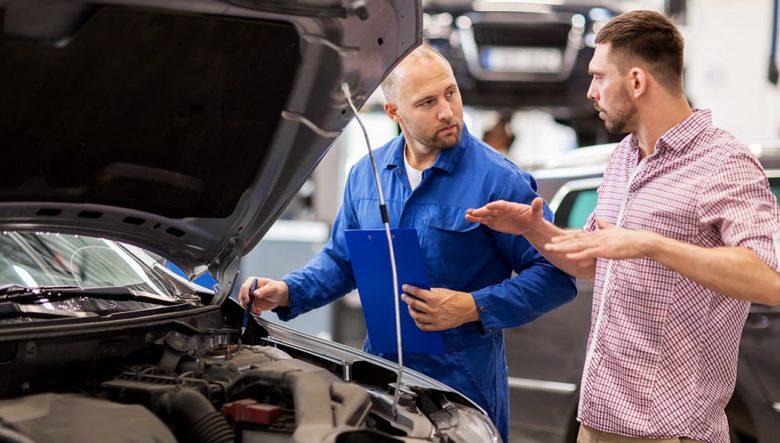When you take your car in for Mechanic Speak service, the language used by your mechanic can sometimes feel like a foreign dialect. Technical jargon, acronyms, and industry terms can be intimidating, leaving you nodding along without. To bridge this communication gap, we’ve compiled an essential glossary of common automotive terms that mechanics use. This guide aims to demystify the terms and help you communicate more effectively with your service provider.
- Aftermarket: This term refers to parts and accessories not sourced from the car’s original manufacturer. Aftermarket components can be performance-enhancing, such as upgraded exhaust systems, or purely aesthetic, like custom wheels.
- OEM (Original Equipment Manufacturer): Optimal performance as they are identical to the parts that come with the vehicle. For those who own a BMW, consulting BMW spare part experts can ensure you get genuine OEM parts.
- Diagnostics: Mechanics use diagnostic tools to read these codes and understand your car’s health.
- Torque: Torque refers to the twisting force your engine generates – it’s important because it determines how quickly your vehicle can accelerate from a stop. Mechanics might discuss torque when you are looking to enhance performance or diagnose a power issue.
- Chassis: Often referred to as the vehicle’s “frame”, the chassis is the base framework of your car that supports the body and other components. Mechanics might discuss issues related to the chassis when addressing alignment or damage from accidents.
- Powertrain: The powertrain of a vehicle includes the engine, transmission, and drivetrain – it is essentially the system that provides power to the car and enables it to move. Issues here can be significant and costly.
- Transmission: This component of your vehicle is crucial for changing gears and efficiently transferring the engine’s power to the wheels. Common types include manual, automatic, and continuously variable transmissions (CVT).
- Catalytic Converter: A crucial part of the exhaust system, the catalytic converter helps reduce the emissions of harmful gases like carbon monoxide and nitrogen oxides. Mechanics often check this component during emission tests or if there’s a noticeable increase in exhaust fumes.
- ABS (Anti-Lock Braking System): ABS prevents the wheels from locking up during braking. allowing the driver to maintain steering control and helping to avoid uncontrolled skidding. It’s a standard safety feature that mechanics might refer to during brake checks or if you’re experiencing braking issues.
Understanding these terms can make a world of difference when you next visit your mechanic
Armed with this knowledge, you can ask informed questions, better understand the services being performed. Make educated decisions about your vehicle’s maintenance and repair needs. Remember, an informed customer is an empowered customer. Always feel free to ask your mechanic for clarification if any terms or explanations are unclear.
